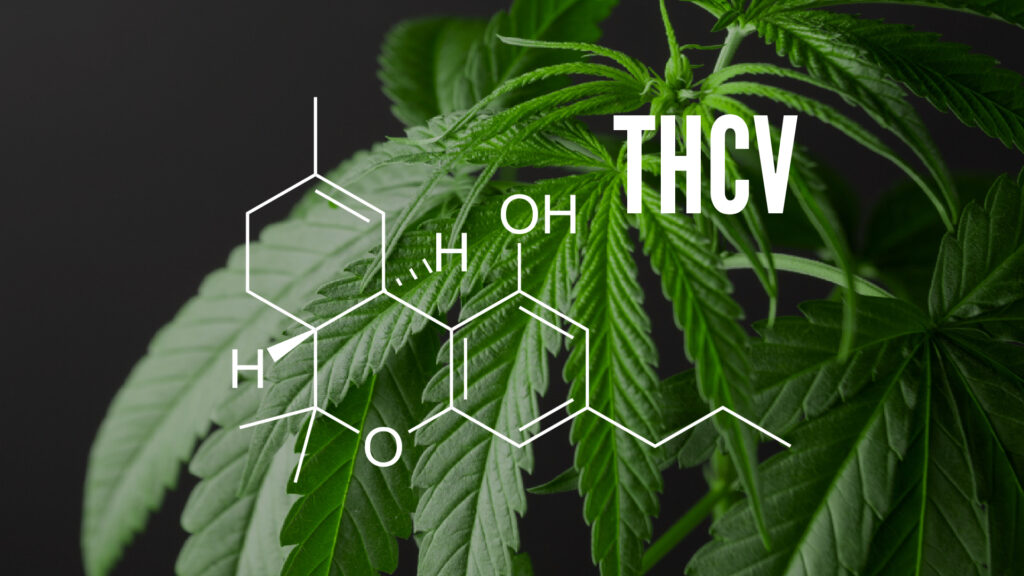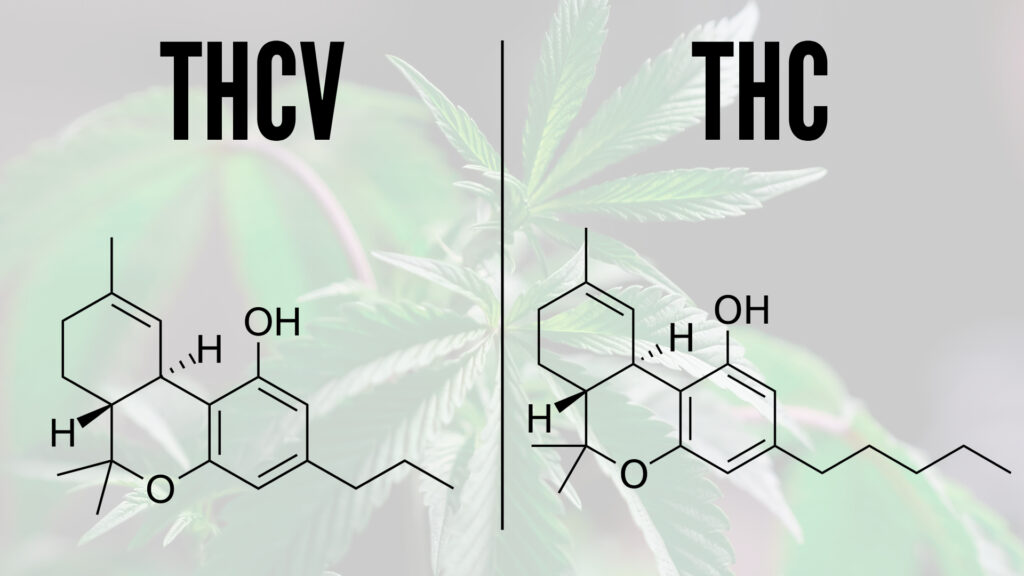THCV, or tetrahydrocannabivarin, is a minor cannabinoid, meaning it is found in lower concentrations than THC and CBD. THCV is found in cannabis and hemp plants and can be consumed in plant form or as an isolated extract, most commonly in oil form.
THCV is gradually gaining popularity, and it is particularly well-known for its health benefits. Its effects on the body are caused by its interaction with cannabinoid receptors CB1 and CB2. Depending on their location, these receptors are responsible for the subsequent cascade of effects in the body.

It’s easy to mix up THCV and THC, and for more reasons than just the one letter difference.
The structures of THCV and THC are strikingly similar. In fact, the only structural difference between THCV and THC is that one has a propyl group while the other has a pentyl group. This difference may not mean much to those unfamiliar with chemistry, but what you need to know is that THCV and THC interact with the cannabinoid receptor CB1 in different ways.THC specifically activates CB1, whereas THCV blocks it, which is why THCV is thought to be an appetite suppressant. Because THCV has a higher boiling point than THC, you will need to heat it to a higher temperature if you intend to use it in a vaporizer.
Another significant distinction between THCV and THC is the amount of research conducted on each cannabinoid. THC has been much more thoroughly studied and has many more studies published on it than THCV. This is not to say that research into THCV does not exist, but it is far less prevalent. Having said that, research on the effects of THCV is becoming more common.
Another distinction between THCV and THC is the health benefits they provide. While THCV and THC have some similarities in their effects, each cannabinoid is likely to provide different health benefits.

Because THCV is structurally similar to THC, you may be wondering if it can get you high. THCV has the ability to produce a psychotropic effect, which means it can get you high. However, you will need to consume a large amount of THCV before you experience any intoxicating effects. THC is still the most psychotropic cannabinoid, and is largely responsible for the infamous cannabis high.
When it comes to THCV, there are huge benefits. Let’s look at some of the potential benefits of THCV and the research that supports them.
One particular benefit of THCV is its ability to lower blood sugar levels. High blood sugar levels are linked to a variety of health problems, including diabetes, stroke, and heart disease. It is critical to keep your blood sugar levels low and stable in order to stay healthy.
THCV was found to reduce glucose intolerance, increase insulin sensitivity, and restore insulin signalling in genetically obese mice in one study. Despite the fact that this study only uses mice and not human models, it highlights THCV’s potential to treat glucose intolerance and help keep blood sugar levels in check.
Because of its ability to promote the production of new bone cells, THCV may also stimulate bone growth. THCV has been shown in studies to stimulate bone nodule formation and collagen production, implying that it may play a significant role in bone growth.
As a result, THCV holds great promise in the treatment of bone-degenerative diseases such as osteoporosis, though more research is required.
The ability of THCV to reduce inflammation is an important health benefit. While inflammation is an important immune response that helps our bodies fight infection and respond to injury, it can also cause pain and heat, as well as contribute to the development of a number of debilitating conditions.
According to a 2010 study published in the British Journal of Pharmacology, THCV reduced inflammation and inflammatory pain in mice. This study found that THCV’s anti-inflammatory effects likely occurred through its interaction with the cannabinoid receptors CB1 and CB2.
It’s easy to mistake THCV for THC, but a quick look at the research shows that THCV deserves its own spotlight. This cannabinoid has a variety of therapeutic benefits, including the ability to reduce inflammation, lower blood sugar levels, and even stimulate bone growth.
While more research into THCV is required before conclusive claims about its medical viability can be made, early indications suggest that it is an exciting cannabinoid to keep an eye on.